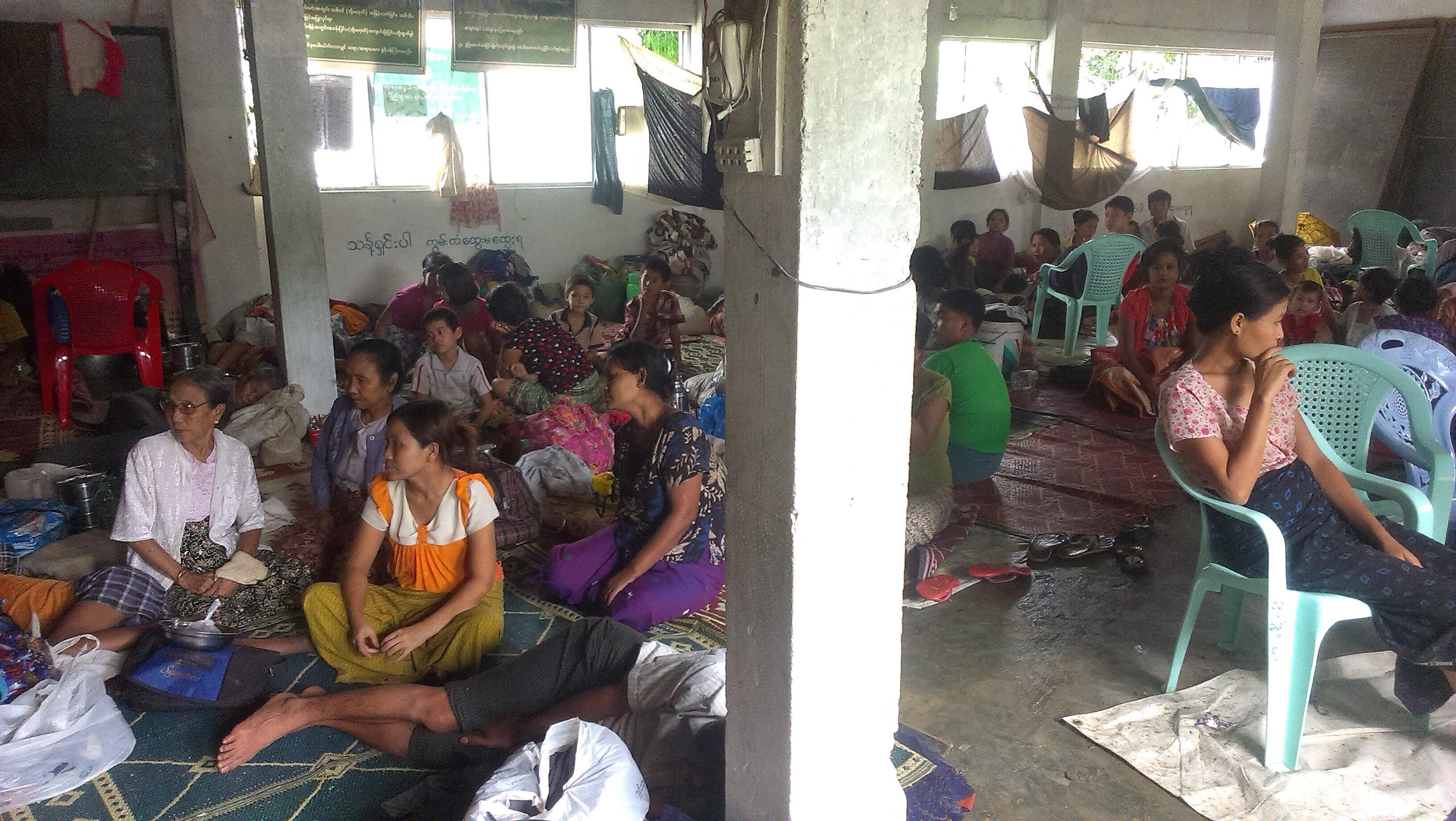Yangon/Bangkok - Amid the devastation wrought by flooding and landslides triggered by Cyclone Komen and further exacerbated by monsoon rains in many parts of Myanmar, the United Nations Population Fund, UNFPA, is supporting the government and civil society partners in responding to the ongoing crisis.
Earlier this week, Myanmar authorities reported that over 200 000 people have been affected so far, including dozens of deaths, across 12 states and regions, with the number of casualties expected to rise as more information from storm-battered areas becomes available. The government is leading the response and various agencies including UNFPA have been requested to provide support through their respective line ministries. Focusing on the urgent needs of women and girls as per its mandate, including reproductive health services and the prevention of gender-based violence, UNFPA's response is symbolized by its trademark dignity kits and clean delivery kits, key components of the organization's interventions in humanitarian emergencies worldwide.
"In the immediate aftermath of natural disasters and other emergencies, food, water and shelter are an obvious priority, but the particular challenges that women and girls face at such a time can often be overlooked," explained Kaori Ishikawa, Deputy Representative, UNFPA Myanmar. "We must help ensure that each and every childbirth is safe, even in a disaster zone, that every new mother and her infant receive the care they need, and that women and girls are safe from sexual assault and other forms of gender-based violence."
"Our response at this time builds on the support we've long provided in Rakhine state and elsewhere in Myanmar," noted Dr Stenly hely Sajow, Humanitarian Response Coordinator at UNFPA Myanmar.
- UNFPA Myanmar has worked with government and a range of UN partners on an urgent multisectoral needs assessment in some of the worst-affected areas, including Buthidaung township of Rakhine state.
- UNFPA and its implementing partners have so far distributed 300 dignity kits in Mogaung township of Kachin state; 400 dignity kits in Thandwe, Minbya, Taung Cok and Ann townships in Rakhine state; and almost 600 dignity kits in the Sagaing region.
- UNFPA, through its own Emergency Response Fund [ERF], had already prepositioned emergency reproductive health kits requested by the Ministry of Health, given that Myanmar is frequently hit by natural disasters and other emergencies. These will benefit women and girls that need them, and will be distributed to affected health facilities via government agencies and humanitarian actors including international and local non-government organizations.
- UNFPA Myanmar continues to lead the sub-sector on gender-based violence (GBV) and sexual and reproductive health (SRH). The GBV sub-sector helps ensure that affected women of reproductive age receive sanitary napkins and other essential supplies contained in dignity kits, and that psychosocial support services are available to women and girls affected by gender-based violence and natural disasters as well.
- UNFPA, with its GBV and SRH partners, is also mobilising funds and other resources -including through the Central Emergency Response Fund [CERF] mechanism - for the services it provides.
"We cannot prevent natural disasters from occurring, of course," said Dr Sajow, "but we can support government and civil society in disaster risk reduction, in preparing for the worst ahead of time. And when disaster does strike, UNFPA provides whatever help and relief we can to affected populations, especially women, girls and young persons whose health and well-being are central to humanitarian response and long-term recovery."
"This is a particularly difficult season of disasters, with not only the crisis in Myanmar but severe flooding and associated hardship in several areas of Bangladesh, India and Pakistan as well," said Priya Marwah, Humanitarian Response Coordinator, UNFPA Asia-Pacific Regional Office, based in Bangkok. "Indeed, Asia and the Pacific as a whole is the most disaster-prone region in the world, and we are constantly being reminded of that reality. UNFPA, along with our UN partners, is there to support Member States in responding swiftly when crises strike - now, and in the future."
For more information, contact:
in Yangon,
Ben Manser, manser@unfpa.org, mobile +95-9 79 630 7662
Si Thu Soe Moe, soemoe@unfpa.org, mobile +95-9 45 005 7730
in Bangkok,
Roy Wadia, wadia@unfpa.org, mobile +66 84 875 2634


